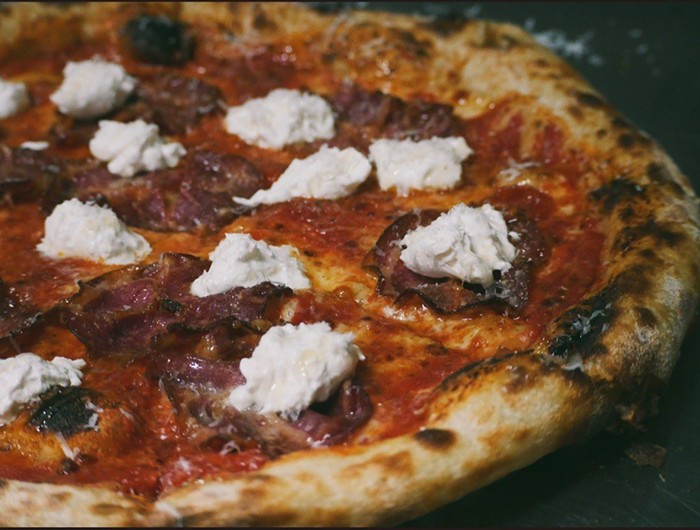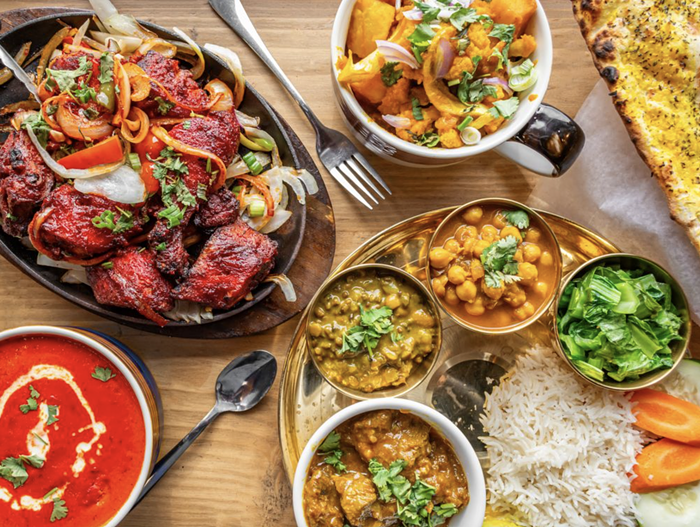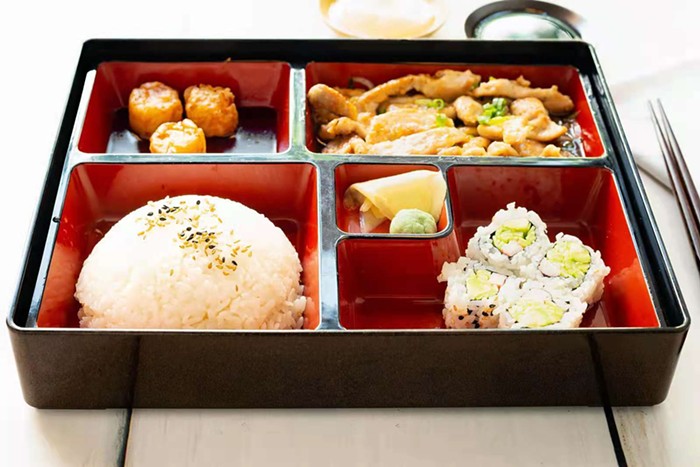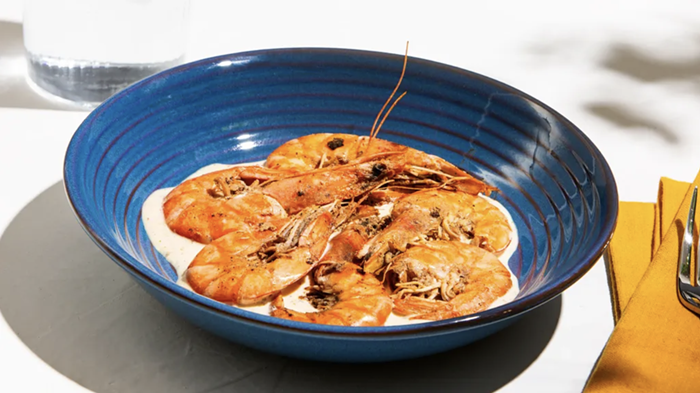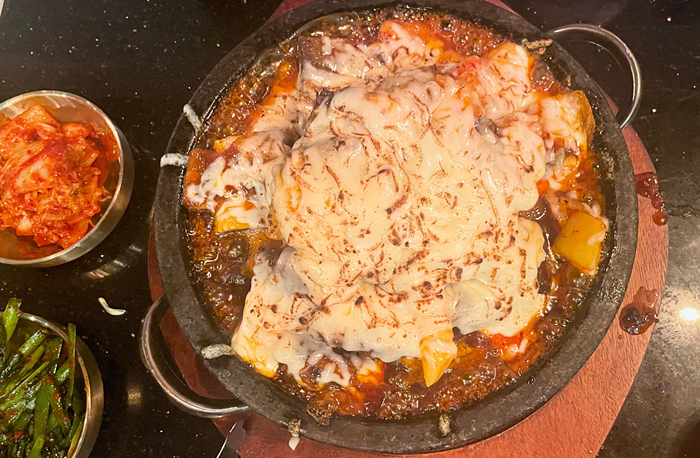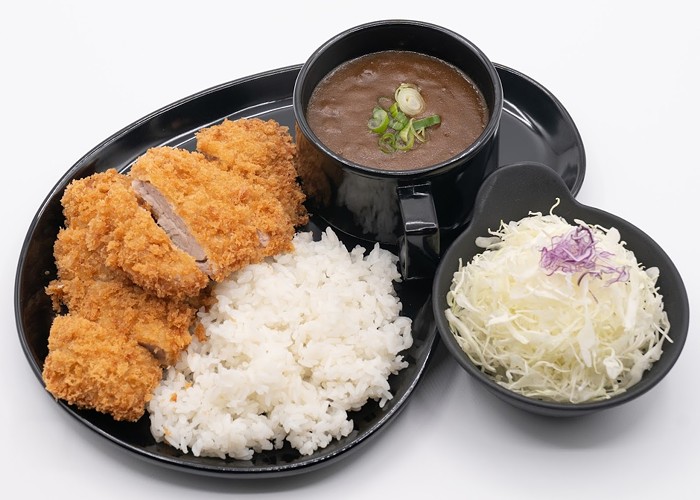The United States, at least statistically speaking, has more Christians than any other country on earth.
Fully 70 percent of Americans identify as Christian. Which means that if you're a religious minority, our national holiday of Christmas can be a weird time. The streets are deserted. The machinery of commerce is quiet. It's like a practice run for the Rapture.
Except at places like Shanghai Garden in the International District, where crowds always spill out the door on Christmas and a long, symbiotic tradition continues: Chinese restaurants providing space and nourishment for Jews, Hindus, Buddhists, atheists, and other people seeking refuge from the religious mainstream on days when everyone else in America seems to disappear.
Much has been written about this tradition and its roots. When it comes to my type of religious minority, Jews, it seems it all began in the early part of the last century, when Jewish immigrants with nothing to do on Christmas started linking up with Chinese immigrants who likewise weren't strict observers of Christmas. (It also helped that Chinese cuisine matches kosher dietary restrictions in that Chinese dishes rarely mix milk with meat.)
But for this Jew, born in Seattle to a man who was the son of immigrants and a woman whose grandparents were immigrants, the tradition was more about, well, tradition. By the time I was an adult looking for something to do on Christmas, it was just a given that I would find myself at a Chinese restaurant. And since this is Seattle, it was pretty much a given that I'd end up at Shanghai Garden—which, over the Christmas holiday, frequently looks like the capital of some tiny, temporary, mostly-Jewish state where a lot of people wear a lot of REI-brand clothes.
All of which is to say that I knew why I was at Shanghai Garden on Christmas after Christmas, ordering salt-and-pepper squid, dumplings stuffed with spinach, shrimp with black bean sauce, and, of course, the barley green hand-shaved noodles: tradition! But this year, in preparation for the holiday, I decided to inquire into something I'd long neglected to ask about: Why are the people running Shanghai Garden there on Christmas?
It turned out this was a difficult question to answer.
A server at Shanghai Garden told me recently that, yes, she will be working at the restaurant this Christmas, but that she also celebrates Christmas (and intends to mark the holiday after her shift). As for the owner—or owners—of Shanghai Garden, I tried every way I could think of to reach them: phone, e-mail, Facebook, in person, through state business license records, through multiple business associations that serve the International District, through a contact at the Wing Luke Museum... nothing.
Rahul Gupta, the education director at the Wing Luke, told me that his Hindu family also had a tradition of seeking out Chinese restaurants on Christmas, and to help me with this story, he went so far as to personally walk over to Shanghai Garden and see if he could get an answer where I had failed. No dice, though Gupta did come away with the distinct impression that Shanghai Garden's decision to remain open through Christmas has little to do with religion. "Business," he told me. "It's a business decision. The only day they're not open is Thanksgiving, because so few people come out that day."
If true, this matches with the experience of local food historian Maxine Chan, who, as a young woman, worked Christmases in her parents' Chinese restaurants in Burien and Lacey. She didn't pay much attention to the religion of the people who packed her family's businesses over the holiday; to her, the main thing about them was that they were all white. "The bottom line was, did you leave me a tip?" Chan said. "It was all about the money, the business."
For others, like Maiko Winkler-Chin, executive director of the Seattle Chinatown International District Preservation and Development Authority, working on Christmas wasn't an economic or religious decision. Her mother was Japanese and came from a Buddhist background, but Winkler-Chin herself didn't really identify with any religion. "I always liked working on Christmas Day and Thanksgiving," she told me, "because people are happy and it's festive. For me, there's no religious connotation." (These days, however, Winkler-Chin doesn't work on Christmas because, she said, "I am tired and I've married into a Christian family.")
Chan also doesn't identify as a member of any religion. Her mother, who emigrated from Hong Kong, identified as Christian. "But," Chan said, "we also had ancestral worship, also went to the temple. A number of Chinese families are similar, where they have a number of religious beliefs and they don't see it as contradicting... It's much more fluid."
Whatever the reasons for Shanghai Garden's commitment to staying open over the Christmas holiday, the restaurant's vibe whenever I've spent Christmas there is well described using Chan's word: fluid.
Yes, there's often the novelty of a temporary Jewish majority, but the bigger impression made is of the loud, smiling, well-fed commingling of many minorities—some religious, some nonreligious, some working now and celebrating Christmas later. The restaurant's massive round tables get filled with large families who have to shout at each other over the chow mein and the hot-and-sour soup. At the smaller tables are people who've made their own families for the holiday. Behind the fish tank, in the small waiting area, and outside on the sidewalk, people hold numbered cards that the restaurant brings out to deal with the Christmas crush. Everyone is there to make the most of a moment, and to enjoy those hand-shaved noodles. ![]()


